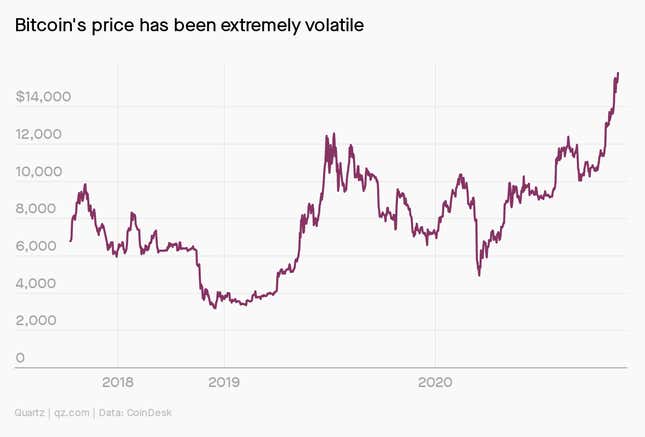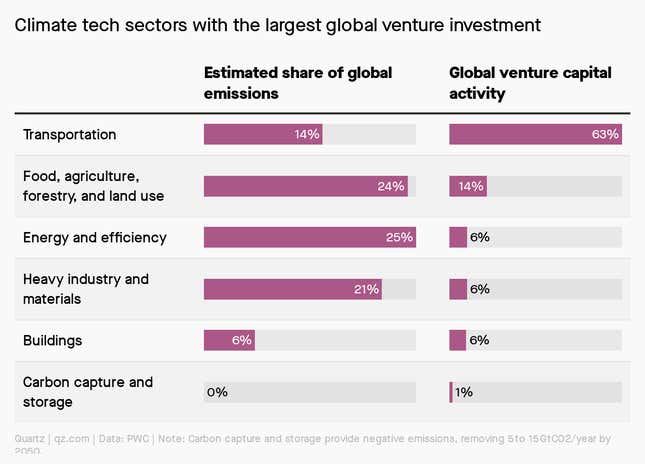Good morning, Quartz readers!
Here’s what you need to know
Boris Johnson’s chief adviser is on his way out. Dominic Cummings, the architect of the 2016 Brexit vote, is expected to leave the government by the end of the year. His departure would follow that of communication director Lee Cain, another pro-Brexit veteran, amid reports of Downing Street infighting.
More Republicans are acknowledging a presidential transition is underway. A growing number of Republican senators say president-elect Joe Biden should have access to intelligence briefings to ensure continuity in the White House. One Republican senator has promised to intervene if Biden doesn’t start receiving them today. And in case you’re still wondering, AP and Fox were correct to call Arizona for Biden.
Trump bans investment in Chinese companies with military ties. The order, which takes effect in January, bars US companies or individuals from owning shares in the 31 firms identified as helping China’s army modernize. Unsurprisingly, the list includes telecom equipment giant Huawei. Meanwhile, TikTok got a temporary reprieve to continue its US operations and avoid an imminent sale.
G20 finance officials discuss debt relief plans. Today’s virtual meeting of finance leaders from the world’s largest economies will focus on restructuring the debts of poor countries hardest hit by Covid-19. If they finalize a plan, it would need to be endorsed by government heads at the annual G20 leaders’ meeting next week.
India hopes for a Diwali shopping bump. But government officials are just as anxious about a coronavirus bump as people flock to markets and visit family and friends with gifts to celebrate a festival that usually prompts a flurry of spending—and an uptick in pollution—in more typical years.
Charting bitcoin’s volatility
Since the spread of Covid-19 in India, bitcoin has outperformed every other asset class, including gold, giving a return of nearly 160% since April. Hindus consider the festivals of Dhanteras (Nov. 13) and Diwali (Nov. 14) auspicious for buying gold, and bitcoin’s returns have enthused some Indians so much that they’re shopping for bitcoin instead of gold this festive season.

Though bitcoin is faring better than gold as the economy struggles through a difficult year, cryptocurrencies are famously volatile, and are unlikely to replace the typical steadiness of gold anytime soon.
Catnip for environmental investors
“Climate tech” in a startup description is what “bitcoin” or “AI” were a few years ago: irresistibly attractive to investors interested in the space. Opportunists eager to make a quick dollar will follow as the money and attention grows, but success won’t come easy.
Quartz summarized the landscape for climate tech in Silicon Valley and around the world. Investors, burned by expensive failures during the first clean tech boom between 2006 and 2011, are returning to cheaper startup and scaling costs and a growing expected market.

We’ll break down those sectors and tell you 87 startups to watch in our guide to climate tech’s second shot.
✦ It’s Members Week! We’re celebrating two years of Quartz membership, and we’d like to invite you to invest in your future reader satisfaction at 50% off, using code MEMBERSWEEK. (This offer does not apply to Quartz Japan memberships.)
You asked about polls
Why do US election polls keep getting it so wrong?
Less than a week ahead of the election, polls indicated Joe Biden would carry key swing states such as Florida and Ohio by six and four points respectively. In the end, Trump won Florida by 3.4 points and Ohio by 8.2 points. Polls were even more inaccurate for other races.
We were struck by the parallels between overconfident polls and overconfidence in human judgment. When asked to report an uncertain answer to a question using a 95% confidence interval—that is, to provide a range which they think has a 95% chance of containing the true answer—people’s intervals routinely contain the truth less than 50% of the time. (Quartz recently built a tool that lets you test your own overconfidence using this method.)
The last two presidential elections are not exceptional: polls are almost as consistently overconfident as individuals are. Aditya Kotak and Don Moore took a close look at the data.
As Covid-19 cases jump, we’re turning our Q&A attention back in that direction for next time.
Make business better with Quartz
Join our CEO Zach Seward on LinkedIn Live for a high-paced weekly discussion with next-gen business leaders on how they’re making business better in their own organizations. The series starts on Nov. 17—be sure to follow Quartz and Zach on LinkedIn to receive reminders.
Surprising discoveries
A giant gator was spotted in Florida amid tropical storms. The mighty animal wandered around the grounds at a golf club.
“Made in China” is getting a rebrand on Indian store shelves. Manufacturers are now labeling products “Made in PRC” to sidestep rising anti-China sentiment.
A museum thanked a donor by naming a pair of bathrooms after him. The Baltimore Museum of Art said Hairspray director John Waters specifically requested the honor.
A presidential decree saved a Nairobi fig tree. The century-old tree, a beloved landmark of Kenya’s capital city, was in danger of being felled for a Chinese-funded highway.
A Roman vault stores thousands of pieces of stolen art. The facility acts as a halfway house for pieces seized by police but not yet returned to their rightful owners.
Our best wishes for a productive day. Please send any news, comments, famous toilets, and misleading product labels to hi@qz.com. Get the most out of Quartz by downloading our iOS app and becoming a member. Today’s Daily Brief was brought to you by Jane Li, Tripti Lahiri, Liz Webber, and Susan Howson.